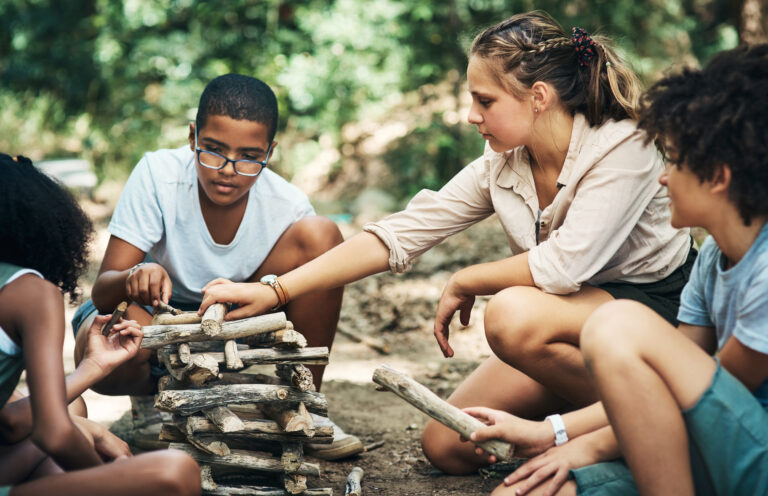
5 Tips to Find the Best Summer Camp for your Tween or Teenager
If you have children between the ages of 10 and 14, it’s never too early to brainstorm plans for the summer. This is especially true if you are leaning toward the age-old American tradition of sending your child to summer camp, where demand is high, costs can be even higher, and options become more limited at the upper end of this age group.
An estimated 20 million children will be attending more than 12,000 camps this coming summer – so the time to research locations, cost and activities is now! The benefits of attending summer camp are huge. Your children spend time in a safe place, where they can improve social skills, increase physical activity, take a break from technology and develop specific interests and talents. In fact, there is ample evidence that a quality camp experience can have lasting impact, shaping character and supporting learning well into adulthood.
As you start to search, here are five tips to help you in your search for the best camp fit:
- Know Your Child: This might seem obvious, but the first consideration is your child’s age and maturity level, personality, abilities, quirks, interests and any special needs. Talk to them about what they want out of a camp experience. The American Camp Association has a search tool that can help you narrow down your options.
- Know Your Budget: The range of costs for summer camps is wide, but they all add an additional expense to your budget – and some require hefty deposits well in advance of the first day. The American Camp Association puts the average cost of summer camp in the United States at around $180 a day, and for sleep-away camp, $449. So make sure you have a budget in mind as you begin planning for 8 to 12 weeks of camps. This might immediately narrow the list and actually make your decisions easier! Also, do your research to understand ALL the costs – like snacks, field trips, lunches, early and late drop-off and pickup fees, and other potentially unexpected extras.
- Decide on Sleep-Away vs. Day Camp. Again, it pays to talk this out with your child. How would they feel living away from home for a few weeks? Could they navigate personal care routines on their own? If not, day camps are typically closer to home and can be a great way to work up to overnight camp. To find day camps, check out local city and county recreation departments, libraries, colleges and universities, aquariums, museums and local theater groups.
- Look For Well-Rounded Programming. If your child isn’t attending a specialty summer camp, look for a camp that offers a good balance of activities. Ensure that their camping experience includes traditional sports, aquatic activities such as swimming, sailing and canoeing, as well as archery, hiking and arts and crafts. The more options your child has, the more likely they are to enjoy their time away.
- Check the Safety Boxes. Do your due diligence. While you want to thoroughly research the summer camps you are considering, it’s also important to ask general questions about operations. Is the camp licensed or accredited? What’s the counselor training program like? What’s the ratio of counselors to campers? Other factors to consider include handling of sick children, staff screening and policies surrounding parents’ communication with and access to children.
As challenging as summer camp planning can be, remember that you are helping to create some pretty epic memories for your child. And if they come home having learned something and had fun doing it, you planned well!
Have more questions? We’ve got answers! Explore our Frequently Asked Questions to learn more about our Prepaid Plans and Savings Plan. And click here to start your savings now!
